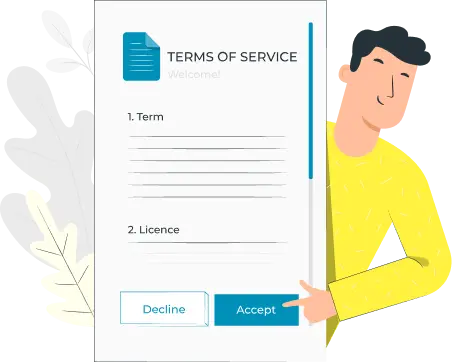Maternity leave is a paid or unpaid leave granted to expectant or new mothers to care for their newborns. It allows them to recover from childbirth physically, adapt to their new roles as mothers, and establish a strong bond with their babies.
Childbirth is a physically demanding process, and maternity leave is crucial for mothers to heal and recuperate. It reduces the risk of postpartum complications and supports overall well-being, allowing mothers time to recover and adjust.
The early weeks and months following childbirth are crucial for establishing a strong bond between mother and child. Maternity leave allows mothers to dedicate this important time to nurturing their connection, which is essential for the baby's emotional and social development. This bonding period fosters a secure and supportive environment, promoting the child's well-being. Mothers can help ensure a positive start for their baby's future growth by focusing on this relationship.
The transition to motherhood can be overwhelming, and maternity leave offers a crucial break from work responsibilities. This time off helps reduce stress, allowing mothers to focus on their well-being and the needs of their newborn. By providing this respite, maternity leave supports better mental health and helps new mothers adjust more smoothly to their new role. Ensuring a balance between recovery and parenting can lead to a more positive and manageable transition.
Maternity leave is crucial for establishing and maintaining breastfeeding, which provides numerous health benefits for both mother and baby. It allows mothers the time and flexibility to focus on this important aspect of infant care without the added pressure of work responsibilities. By supporting breastfeeding, maternity leave contributes to the baby's nutrition and overall health while promoting a stronger maternal-infant bond. This dedicated period supports both mother and child's physical and emotional well-being.
By providing maternity leave, employers support working mothers, facilitating a smoother transition back into the workforce. This support helps maintain career continuity, allowing mothers to return to their roles more easily and confidently. It also fosters a positive work environment, demonstrating the organization's commitment to employee well-being and work-life balance. Such policies can enhance employee loyalty and retention, benefiting the organization and workforce.
Providing adequate maternity leave highlights a company's commitment to its employees' well-being, which can significantly boost morale and loyalty. When employees see that their organization values and supports their personal and family needs, it enhances overall employee engagement and satisfaction. This positive approach strengthens employee retention and fosters a more supportive and inclusive work environment. As a result, employees are more likely to remain committed and motivated, contributing to the company's long-term success.
Offering maternity leave can significantly help employers retain valuable female employees, reducing turnover costs. Companies can maintain a skilled and experienced workforce by supporting employees through significant life events. This commitment to employee well-being fosters loyalty and can improve retention rates, benefiting the organization through a more stable and dedicated team.
Companies prioritizing family-friendly policies, such as generous maternity leave, enhance their attractiveness to potential employees, particularly women. By demonstrating a commitment to supporting work-life balance, these organizations build a positive employer brand that resonates with job seekers. This reputation helps attract top talent and positions the company as a desirable workplace, contributing to overall recruitment success and employee satisfaction.
When mothers return from maternity leave feeling rested, supported, and connected to their babies, they will likely be more focused and productive at work. The time off helps them recharge and adjust, increasing job satisfaction and engagement. This positive state of mind translates into higher productivity and better performance, benefiting both the individual and the organization. By supporting a smooth transition back to work, employers can harness the full potential of their returning employees.
Familiarize yourself with your company's maternity leave policy and any applicable labour laws in your region. Understanding your entitlements helps you plan accordingly and maximize your maternity leave. Being well-informed about your rights allows you to navigate the process smoothly and ensures you receive the support and benefits you're entitled to during this important time.
Inform your employer about your pregnancy as early as possible to allow for adequate planning and transition arrangements. Early communication helps ensure that your employer can prepare for your absence, make necessary adjustments, and discuss any adjustments needed for your role. This proactive approach supports a smoother transition and helps maintain a positive work environment during maternity leave.
Stay connected with your workplace during your leave, if possible, to help make your transition back to work smoother. Keeping in touch allows you to stay updated on any changes and maintain professional relationships. This proactive approach can ease your reintegration, making it easier to pick up where you left off and adjust to any new developments in the workplace.
Develop a comprehensive maternity leave policy that outlines eligibility criteria, leave duration, pay, and other relevant details. Ensure the policy is clearly communicated to all employees to ensure they are well informed about their rights and benefits. A clear and detailed policy helps manage expectations and supports a smoother process for employees and the organization.
Offer support to employees throughout the maternity leave process by providing information on benefits, resources, and flexible work arrangements upon their return. Ensuring employees have access to the necessary support helps them navigate their leave effectively and facilitates a smoother transition back to work. This approach demonstrates the company's commitment to employee well-being and helps maintain a positive and supportive work environment.
Foster a workplace culture that values work-life balance and actively supports parents in their journey. You can enhance employee satisfaction and retention by creating an environment that prioritizes family needs and encourages flexibility. This supportive culture helps parents thrive and contributes to a more inclusive and positive workplace for all employees.
Maternity leave is a crucial benefit that empowers mothers to embrace parenthood while maintaining their careers. It fosters healthier families, stronger workplaces, and a more equitable society. By championing maternity leave, we invest in the well-being of future generations.
Disclaimer: This article and all information in it is provided for general informational purposes only. It does not, and is not intended to, constitute legal or tax advice. You should consult with a qualified legal or tax professional for advice regarding any legal or tax matter and prior to acting (or refraining from acting) on the basis of any information provided on this website.
Choose Glints TalentHub as your partner in Southeast Asia.
Building your Team in
Southeast Asia with Glints' EOR Service

Rapid
Team Setup
Launch Southeast Asian operations in a week for a seamless start

Full Suite of HR Offerings
Launch Southeast Asian operations in a week for a seamless start

Guaranteed 100% Compliance
Ensure total HR and legal compliance with expert local guidance

Dedicated & Immediate Support
Get quick, dedicated HR support within 24 hours